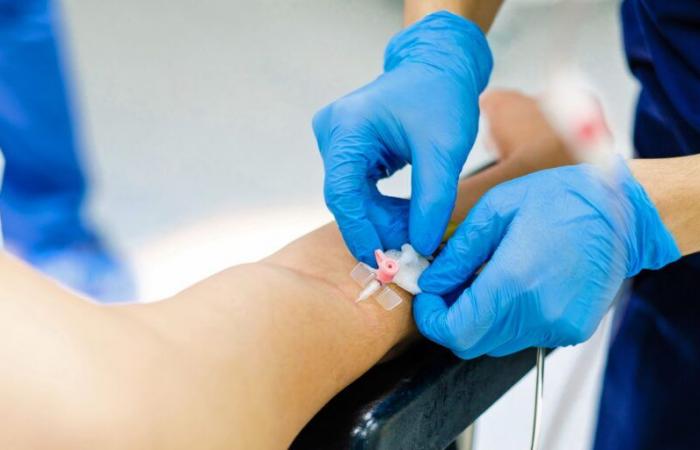The Auditor General has filed a notice of motion with the Court of King’s Bench against the Vitalité network. Its goal is to obtain audit reports carried out by the authority concerning contracts it signed with a private nursing agency.
The Auditor General of New Brunswick, Paul Martin, shows his teeth. He applied to the Court of King’s Bench in Fredericton for two orders on October 9.
The first would order Vitalité to communicate to the independent official the internal audit reports that the health network has carried out concerning agency nursing contracts from January 2022
The second would declare that the Auditor General has the power to access privileged information as well as to waive lawyer-client privilege and litigation privilege.
The legal action initiated by the legislative official stems from his investigation into the management of contracts signed by the two health authorities and the Ministry of Social Development with private nursing agencies.
It found that the provincial government paid more than $173 million to companies of this type between January 1, 2022 and February 29, 2024.
“Our audit confirmed that contracts concluded with private nursing organizations did not reflect best practices and did not demonstrate value for money,” added Mr. Martin.
He also criticized Vitalité’s refusal to provide him with three internal audit reports regarding contracts signed with Canadian Health Labs (CHL).
“The risks identified in the reports and the extent to which these risks have been mitigated are not known,” the official stressed.
However, Vitalité had paid agencies more than $123 million for nursing services, including more than $93 million to Canadian Health Labs, at the time of the investigation carried out in the spring.
Mr. Martin recalled section 13 of the Auditor General Act. This text stipulates that he “has the right: (…) to have free access to information relating to the exercise of his responsibilities, even if it is confidential or private (…).”
Vitality Explanations
The Vitalité health authority ensures that it acts in good faith and that it tries to find a balance between transparency and its legal obligations.
“The network has fully cooperated with the request of the Auditor General to the extent permitted by law. To date, he has shared all requested documents that are not protected by litigation privilege or professional secrecy,” indicates his communications department.
The authority specifies that it prepared the reports required by the Auditor General in anticipation of a potential dispute linked to contracts signed with a private nursing agency that it does not name, but which is probably CHL.
Vitalité wants to keep these documents secret to preserve their effectiveness during a possible trial.
“We are engaged in an alternative dispute resolution method with the company targeted by the internal audit reports. However, no resolution has yet been found. In these circumstances, it is essential to protect the interests of the network,” explains its communications service.
The authority specifies that it remains willing to share the requested reports as part of a confidentiality agreement.
“Such an agreement would allow the Auditor General’s team to examine the reports while ensuring that privileged information is not disclosed to the public. Although the Office of the Auditor General initially declined this offer, the network’s desire to collaborate under these conditions remains unchanged,” adds its communications service.
Vitalité ensures that it respects Canadian legal principles, including the Auditor General Act, by acting in this way.
In July, a committee made up of MPs from the three parties represented in the Legislative Assembly asked the Auditor General to conduct a second investigation into agency nursing contracts with CHL.
A little earlier, the Blaine Higgs government wrote to Vitalité to strongly encourage it to share with the Auditor General its audit reports concerning the contracts that the authority signed with CHL.






